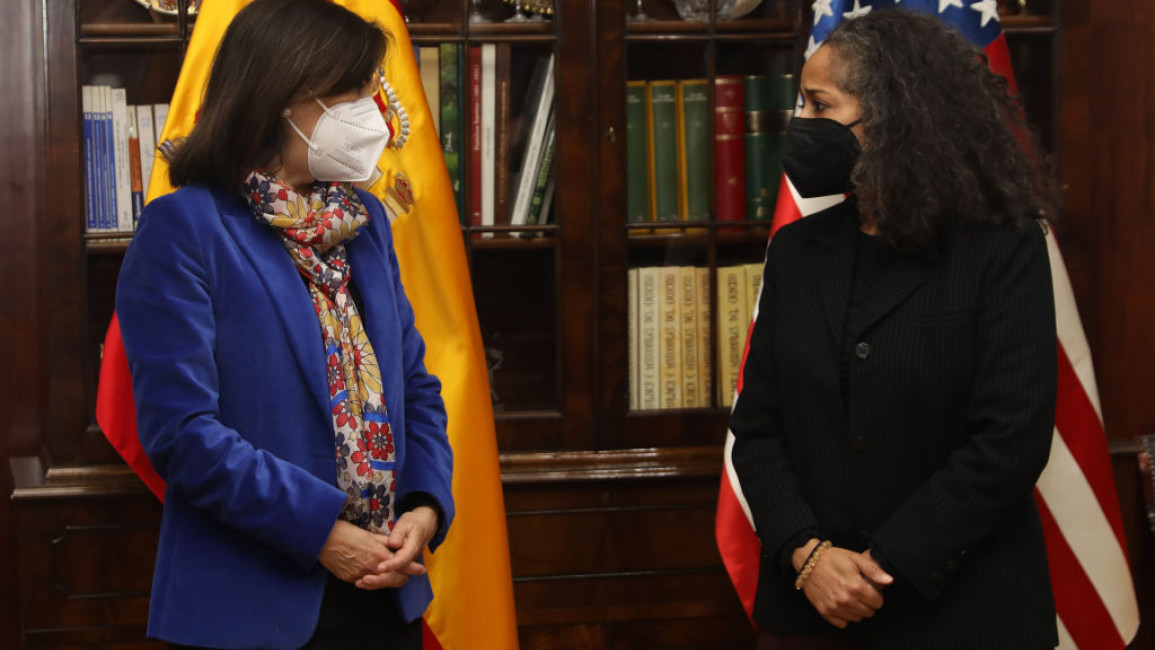US denies pressuring Spain to support Morocco's autonomy plan for Western Sahara
The US ambassador to Spain has denied claims that Biden's administration put pressure on Madrid to change its position on the Western Sahara dispute in support of Morocco's autonomy plan.
"We didn't push Spain to change its position on Morocco. Spain made its own decision," said Julissa Reynoson Pantaleón, the newly-appointed US ambassador in Madrid, during an interview with the Spanish daily La Vanguardia published on Monday.
Spain, which held a neutral stance on the issue since decolonising the territory in 1975, said last month that Rabat's 2007 proposal to offer Western Sahara autonomy within the kingdom is the "most serious, realistic and credible" solution to solve the four-decade-long conflict.
In 2006, Morocco presented its autonomy plan for the territory, which is supposed to allow Sahrawis to run their affairs "democratically", through legislative, executive, and judicial bodies, while Morocco retains control over the defence and foreign relations.
For its part, the UN has backed the plan but the Algeria-backed Polisario Front, which continues to call for an independent state for Sahrawis, rejected Rabat's proposal to date.
The US ambassador's statements came after Russia's envoy in Algeria claimed that Spain's "turnaround" on the conflict was a result of "pressure exerted by certain parties", but without quoting them by name.
By lending its support to the plan, Madrid reconciled with Rabat but opened a new rift with Algiers. Algeria, which backs the Polisario separatist movement, considered Spain's sudden change of policy a "betrayal" and recalled its ambassador to Madrid.
In April 2021, ties between Madrid and Rabat hit a low when Spain allowed Polisario leader Brahim Ghali into Spanish soil for medical treatment. Rabat reacted furiously, recalling its ambassador from Madrid.
The following month, Spain was caught off guard when more than 8,000 stormed its borders in Ceuta. Spain accused Morocco of deliberately putting thousands of lives at risk to "blackmail" Madrid during the diplomatic dispute between the two countries.
Meanwhile, the US ambassador renewed her country's support for Morocco’s autonomy plan. "We believe that Morocco's plan is reasonable, viable and we also support the process that the United Nations," she said.
However, Reynoson made no mention of the US recognition of Morocco’s sovereignty over the territory in 2020. The recognition was signed under Trump's administration as a part of the Abrahams Accord that persuaded Rabat to normalise ties with Israel.
Since its inauguration in January 2021, Biden's administration has yet to formally voice its recognition of Rabat's sovereignty over Western Sahara.



